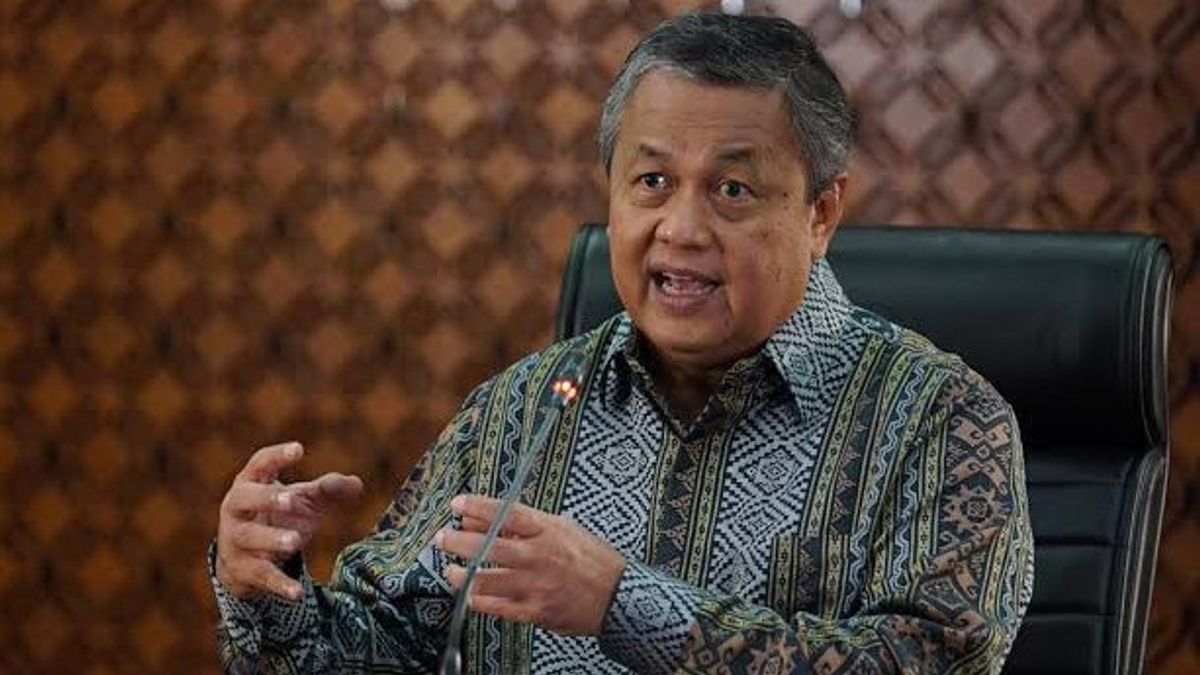JAKARTA - One of the keys to Indonesia's economic future lies in digitalization, which opens up new opportunities for business people, following the explosion in the use of digital channels during the pandemic.
This point was emphasized by the Governor of Bank Indonesia Perry Warjiyo at the 2022 Indonesia-Singapore Business Forum which was held on Tuesday, June 14 in Singapore.
Perry said that digitalization is growing very fast in Indonesia. He also stated that the use of digitalization is important for the sustainable development of the Indonesian economy in the future.
Governor Perry said that digitalization itself, especially digitalization of payments, is one of the six priority agendas of the financial pathway at the Indonesian Presidency at the G20 2022 in July.
"We want to bring Indonesia's digitization to ASEAN, then to the global realm, at the G20 in Indonesia," he said in his speech at the event.
Perry said that Indonesia and other ASEAN countries, among others, were preparing to develop cross-border payment system initiatives.
With the importance of digitization in the post-pandemic era, Micro, Small and Medium Enterprises (MSMEs) cannot be left behind. The Governor of Bank Indonesia said that currently there are 18 million MSME businesses that have been digitized in Indonesia.
"18 million is a big number, but it's actually small, because we have 65 million MSMEs that need to be connected (digitally)," he said.
Perry also said that regarding digitalization, Indonesia has a very large retail market, which needs to be embraced for economic recovery after the pandemic.
According to research by Bain & Company and Facebook, 8 out of 10 consumers in Southeast Asia have now switched to digital. The number of new digital consumers in a year in the Philippines, Singapore, Malaysia, Indonesia, Thailand and Vietnam, is equivalent to the entire population of the UK.
This is agreed by the CEO and co-founder of Blibli, Kusumo Martanto. On the same occasion, he said consumers in Indonesia used e-commerce platforms to buy daily necessities from both MSMEs and large companies during the COVID-19 pandemic.
"During the pandemic, how do people get sanitizer, masks, medicine, that's where we play a big role," he said at the Digital Transformation for MSMEs and Investment in Southeast Asia panel at the event.
During the pandemic, MSMEs who turn to online channels can indeed survive more. Based on research in 2021 conducted by Blibli with the Boston Consulting Group and Kompas, online MSMEs can have 1.1 times higher income than MSMEs that only operate offline.
Meanwhile online MSMEs are also 2.1 times more likely to sell various products on a national scale and 4.6 times more likely to export their products overseas.
However, in the post-pandemic era, simply turning online is not enough for retailers. Based on the Sirclo study, 74.5 percent of consumers are still shopping both offline and online during the pandemic.
Similarly, Kusumo added that he sees the future of retail in the post-pandemic era as an integration between online and offline channels, or omnichannel.
Therefore, Blibli continues to strengthen its omnichannel ecosystem, including through Blibli InStore, Click and Collect, and Blibli Mitra, which connects online and offline business operations in an integrated ecosystem for Blibli retail partners.
“Omnichannel shopping has become the new norm. We must be ready to provide fast and flawless omnichannel services,” said Kusumo.
However, the digitalization process in Indonesia is not without its challenges. Tiket.com CEO, George Hendrata, stated at the same time that training for human resources is still needed to realize the potential of digitization.
This is agreed by Fock Wai Hoong, deputy head of technology and consumer for Temasek. According to Fock, based on a survey by Temasek with Google, talent in human resources remains a major obstacle to technological development.
"This is a challenge for all of us, how to focus on reskilling and upskilling our working population while we prepare to participate in the internet economy," he concluded.
The English, Chinese, Japanese, Arabic, and French versions are automatically generated by the AI. So there may still be inaccuracies in translating, please always see Indonesian as our main language. (system supported by DigitalSiber.id)













